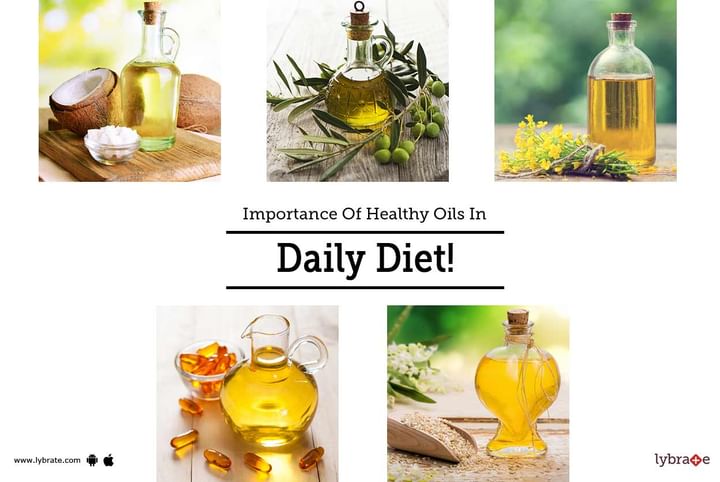Importance Of Healthy Oils In Daily Diet!
You must have heard a dozen times that consuming too much oil or oily food is bad for your health – but not always. Not when you use the right kind of oil in the right amounts. Then it can do wonders for your health.
What are healthy oils?
At 9 calories per gram, oils are the most efficient energy food items you can consume. They help your nervous system send signals to the brain and build healthy cell membranes. Besides, oils help the intestine absorb essential vitamins such as Vitamin K, E, D, and A, and store them in your body fat. They lubricate your skin, protect the organs, and help in the regulation of the hormones.
Benefits of Different Types of Healthy Oils
Two types of unsaturated fats are found in healthy cooking oils – polyunsaturated and monosaturated fats. Consuming food items rich in either of these fats is beneficial for your health – it can improve your cardiac health and help control your blood glucose.
Here are some of the most healthful oils you can include in your daily diet –
• Coconut Oil
Particularly rich in lauric acid, coconut oil is known to improve cholesterol levels and kill bacteria and other pathogens. The fats found in coconut oil help boost metabolism and keep you full for longer as compared to other fats. Two tablespoons of coconut oil per day are just enough to extract its health benefits.
• Olive Oil
Olive oil, particularly Extra Virgin olive oil, has heart-healthy benefits – it increases the levels of ‘good’ HDL cholesterol and reduces that of ‘bad’ LDL cholesterol in your bloodstream.
• Canola Oil
Canola oil consists of both omega-6 and omega-3 fatty acids, which make it the healthiest cooking oil. With 7% saturated fat, canola oil helps bring down cholesterol levels. Since it is a rich source of vitamins K and E, moderate use of canola oil can reduce or prevent skin problems, such as spots and blemishes, wrinkles, fine lines, acne and signs of ageing. You can use canola oil in several ways - dressing on salads, or as cooking oil for stir-frying and sautéing.
• Fish Oil
Fish oil, derived from the tissues of oily fishes, are a great source of omega-3 fatty acids EPA and DHA, which are known to improve hypertriglyceridemia and reduce inflammation in the body. The best source of fish oil is vitamin D3-rich cod liver oil. Fish oil contains a high concentration of polyunsaturated fats, which is why it should never be used for cooking. However, a tablespoon of the same can be consumed daily as a supplement, as recommended by a physician.
• Rice Bran Oil
With a balanced amount of saturated, monosaturated, and polyunsaturated fats, rice bran oil makes for heart-healthy oil. The right amount of oryzanol antioxidant in rice bran oil helps keep your cholesterol levels under control. Moreover, vitamin E complex and other micronutrients contained in it can help combat free radicals and the effects of ageing.
Thus, using a moderate amount of this oil in your daily meal can benefit you in ways more than one.
Even if you choose healthy oil, make sure you are using it in moderation to avoid excess calorie intake. You should measure the serving size of each type before adding them to your recipe in order to keep a check on how much oil you are consuming. Preferably, you should consume oils that are rich in unsaturated fats rather than those high in saturated fats.



+1.svg)
